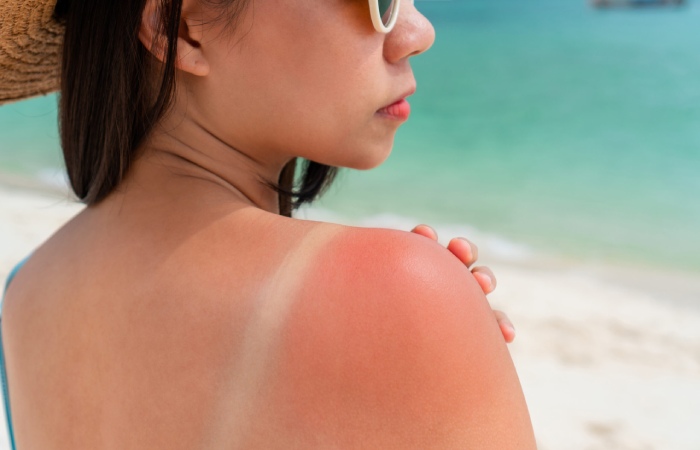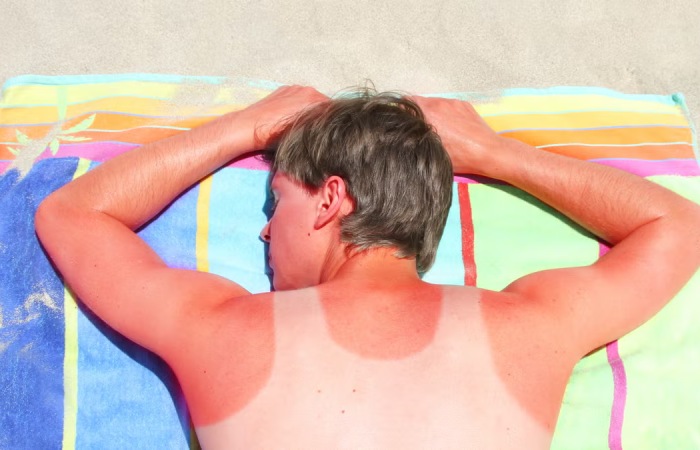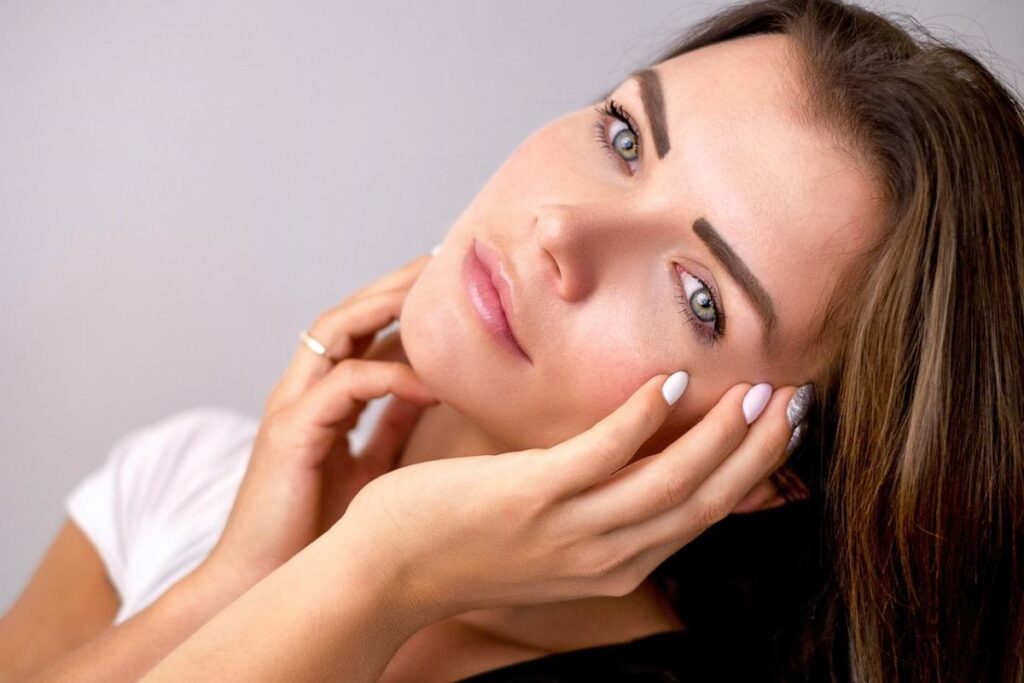Summer is the season to Sunburn, baby, burn — but not in the hell of clubbing. This angry redness appears on your face, shoulders, or any part of your body exposed to the sun’s rays for too long. What happens to your skin when sunburns, and what’s the best way to treat it?
Knowing how to soothe a burn brings relief. Learning how sunburn affects photoaging and disease risk can inspire you to protect yourself.
What Is a Sunburn?
Sunburn occurs when you depiction your skin to too much UV radiation from the sun. While you can feel the heat or infrared radiation, UV radiation cannot be seen or felt. You won’t feel it during exposure, but you’ll quickly recognise the problem when your skin becomes inflamed.
There are two types of UV radiation you need to worry about when spending a day at the beach:
- UVB radiation: UVB rays penetrate just below the skin’s surface to the epidermis, creating a characteristic burn.
- UVA radiation: UVA rays penetrate even deeper into the dermis, accelerating the aging process. Sometimes, the burn can reach this layer, requiring medical treatment and weeks to heal.
It’s important to note that the sun can be beneficial in small doses. For example, it stimulates the body to produce natural vitamin D, a vital nutritional hormone that affects everything from bones to the immune system.
However, climate change has made the sun’s UV rays stronger over the past three decades. You can now, even if you weren’t sunburned as a child. Plus, damage can accumulate unnoticed, accelerating the aging process.
If you want to dig deeper into how UV rays affect your skin and what you can do to protect it, check out our blog on UV rays and mineral sunscreen.
Do Sunburns Cause The Skin To Age Faster?

Your skin cells repair themselves through oxidation. However, excess oxidative stress damages the DNA inside cells, affecting their ability to function correctly. Although you may not immediately see damage to your dermis because it’s beneath the surface, you can develop brown spots, wrinkles, rough skin, redness, and visible blood vessels over time.
Additionally, UV radiation destroys collagen and elastin, which give skin elasticity and firmness. Your skin may start to look old, sagging, and hollow, and it may cut or tear more easily.
What Is the Link Between Sunburn and Skin Cancer?
The damage that UV radiation causes to cells can lead to skin cancer. There are three shared types of skin cancer:
- Basal cell
- Squamous cell
- Melanoma
Melanoma is the deadliest type, causing 7,990 deaths in 2023. It is the most lethal because it can metastasize quickly and spread to other parts of the body. Another serious, though rare, form is Merkel cell carcinoma, which most often occurs in fair-skinned people over age 50 and is associated with the Merkel cell polyomavirus.
However, basal cell and squamous cell skin cancer can also metastasize if left untreated. About 90% of non-melanoma skin growths are linked to sun exposure, the most preventable risk factor. Although prevention is the best cure, seeking medical attention for prompt removal can reduce the risk of serious complications.
What Are the Best After-Sun Gels for At-Home Sunburn Care?
You got a little too hot in the sun and got sunburned. It happens!
While nothing can heal a sunburn except time, proper care can minimize some damage by cooling the burn faster and promoting healing. Cooling gels, like our After Sun Cooling Gel, help hydrate the skin and deliver vital moisture to cells that the rays have dried out.
How to Prevent a burn: 5 Tips to Stay Sun-Safe

The best way to treat a sunburn is not to get one. However, this doesn’t mean you have to live indoors. Follow these instructions to stay safe in the sun and avoid getting burned:
Choose your time in the sun: The sun’s rays are sturdiest between 10 a.m. and 4 p.m., although the heat can last longer. In the summer, try to do all your outdoor activities early and stay inside during the brightest hours of the day.
Always wear sunscreen: Choose a formula with an SPF of at least 30 or higher. Mineral sunscreens provide instant protection, although some acne-prone people find they clog pores.
Cover up: Wear loose, light, airy, breathable cotton and linen clothing. While it may seem counterintuitive, covering up with suitable materials can feel more relaxed than exposing your skin to the sun while preventing sunburn.
Check your medications: Some medications and herbs increase photosensitivity, meaning the rate at which you burn. For example, many people take St. John’s Wort for depression, but it can make them more sensitive to the sun. Prescription medications that increase photosensitivity include retinoids, antibiotics, antifungals, AHAs, antihistamines, and orals.


